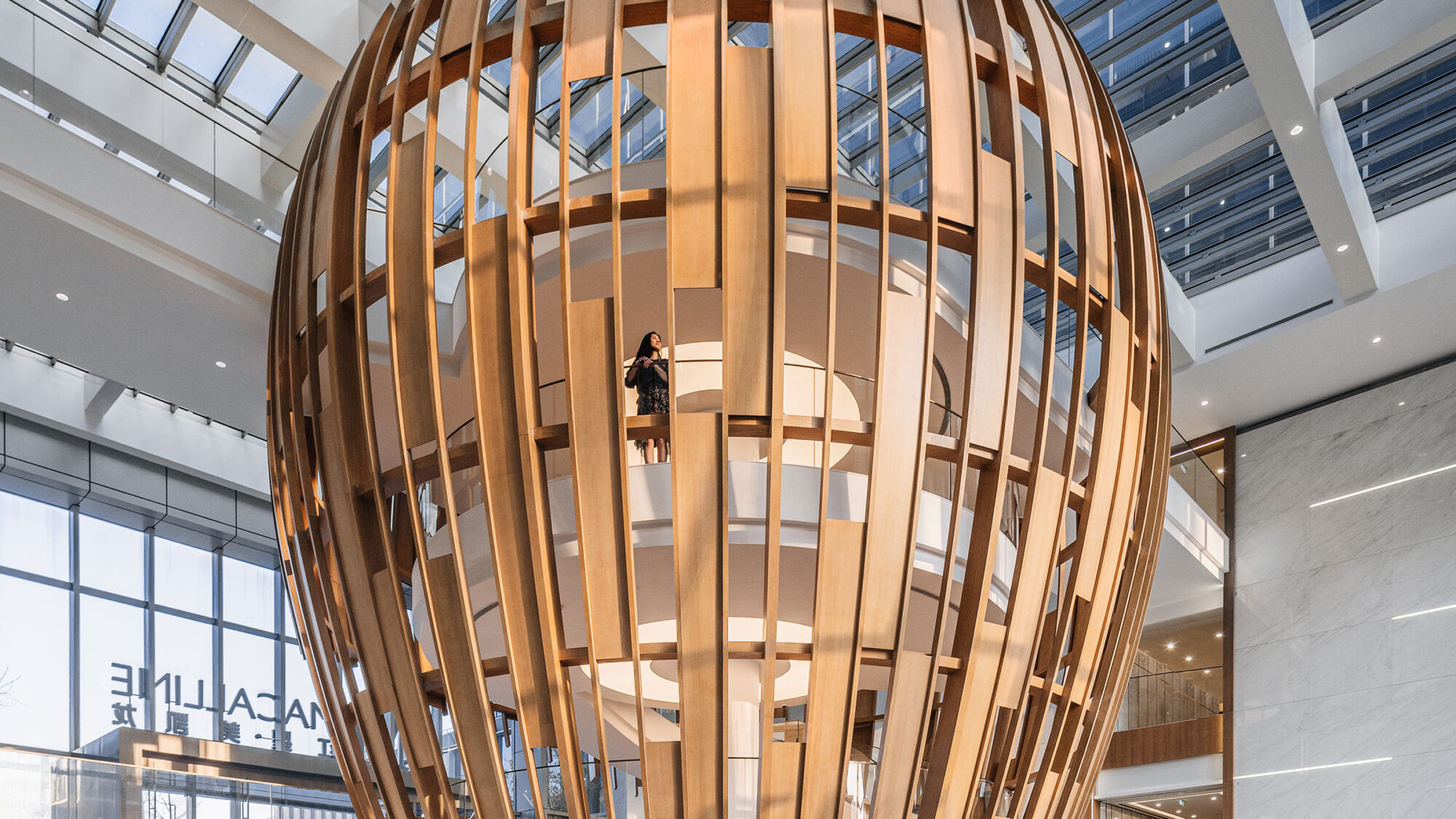

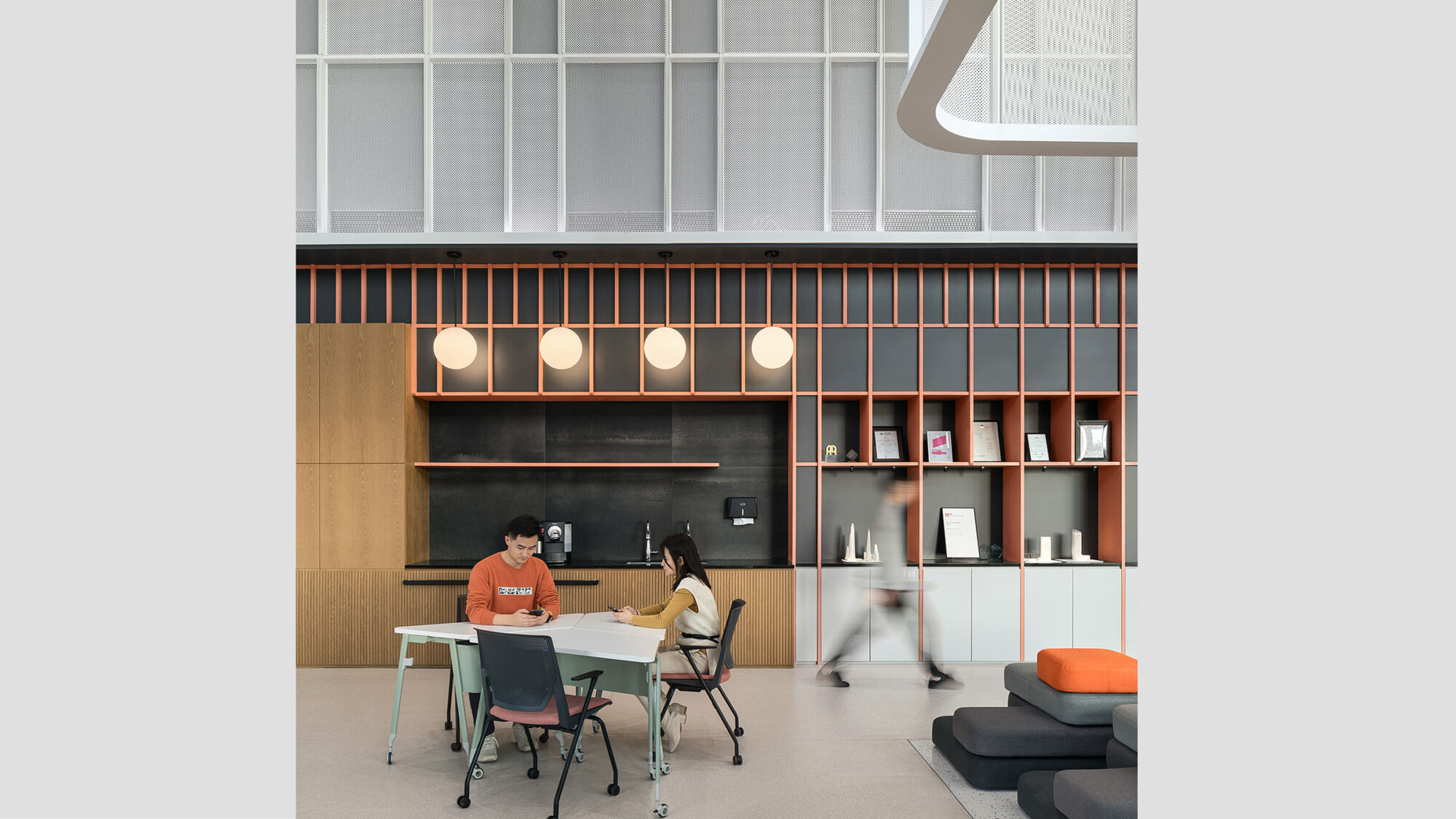
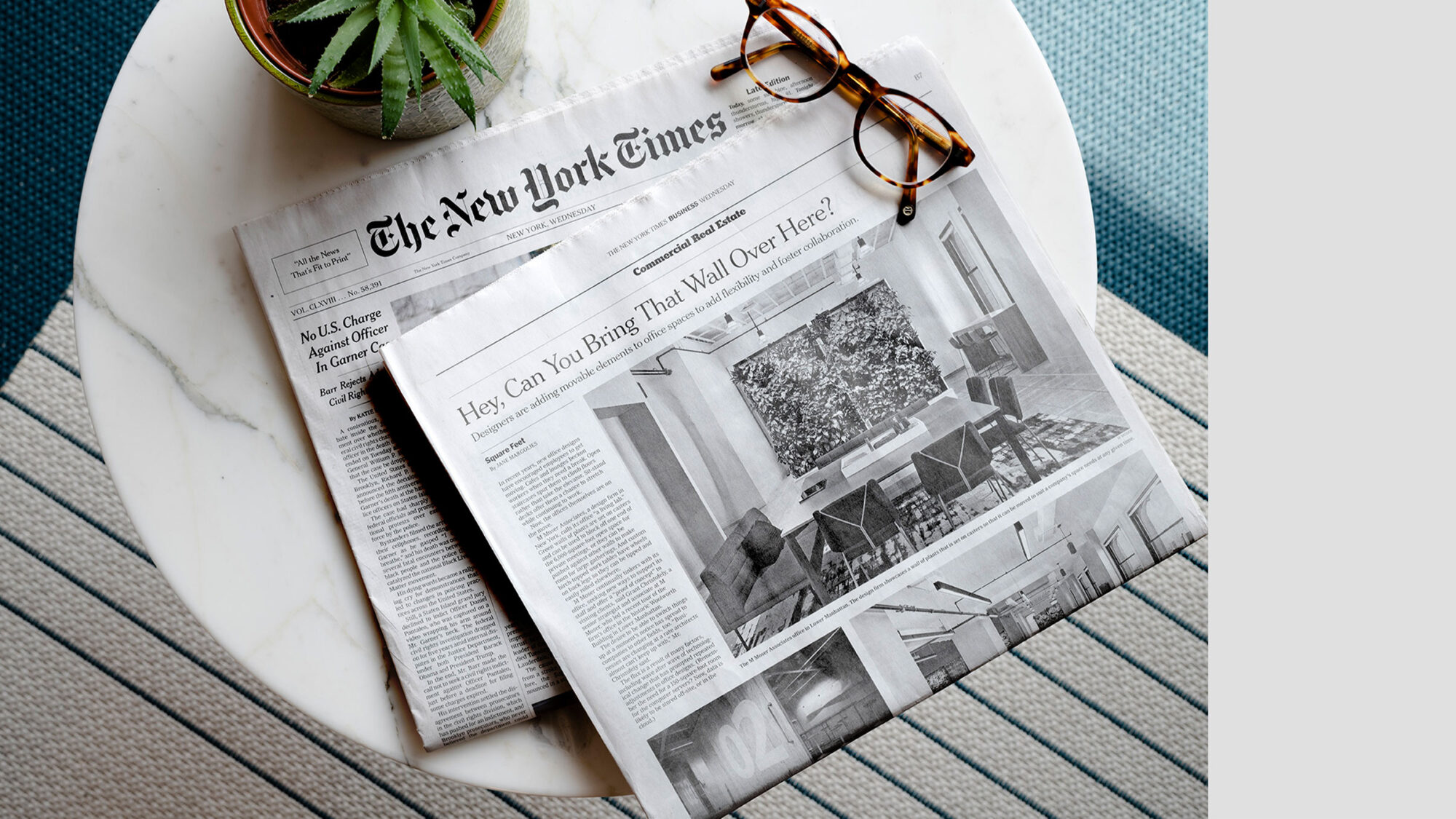

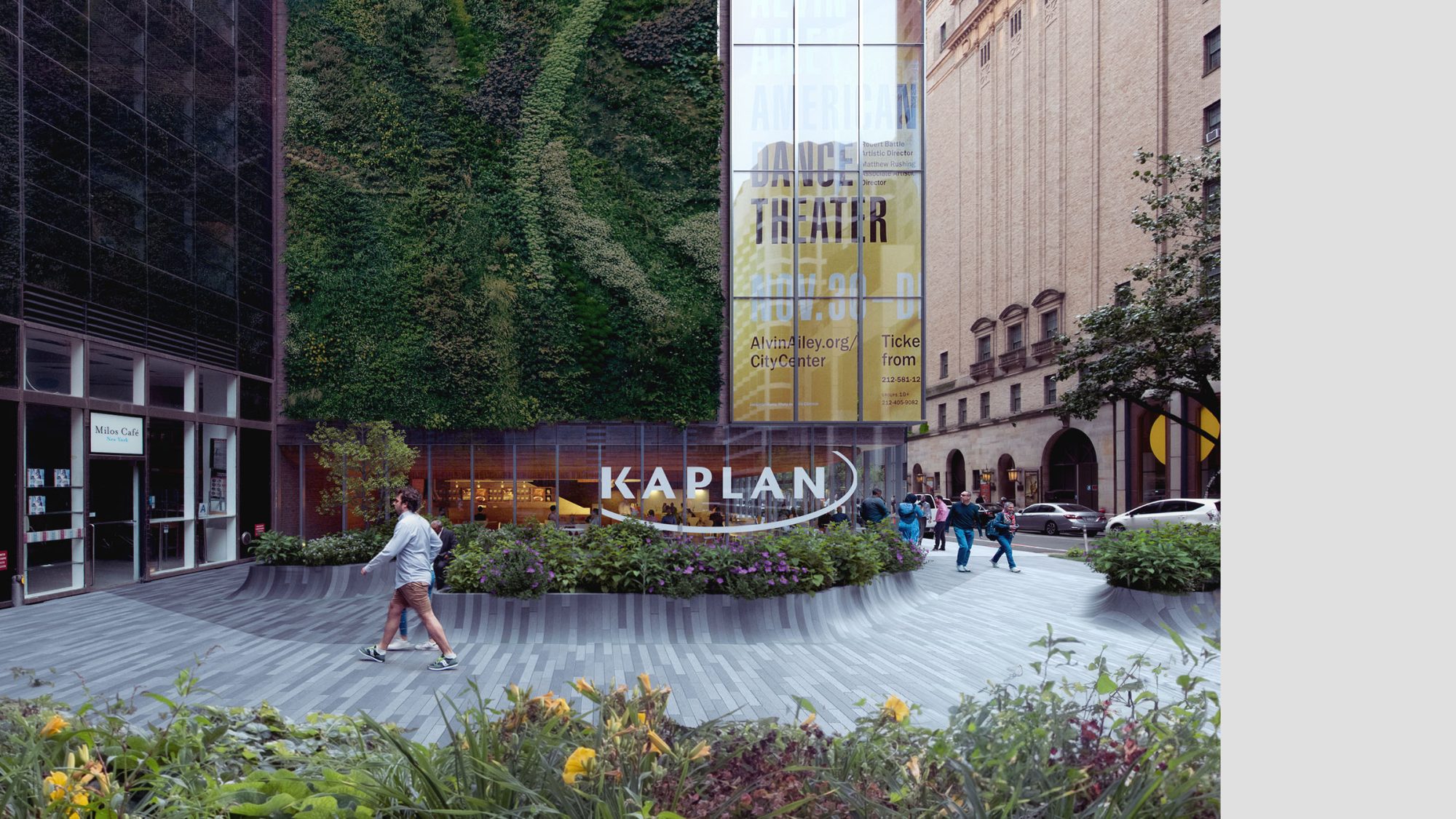
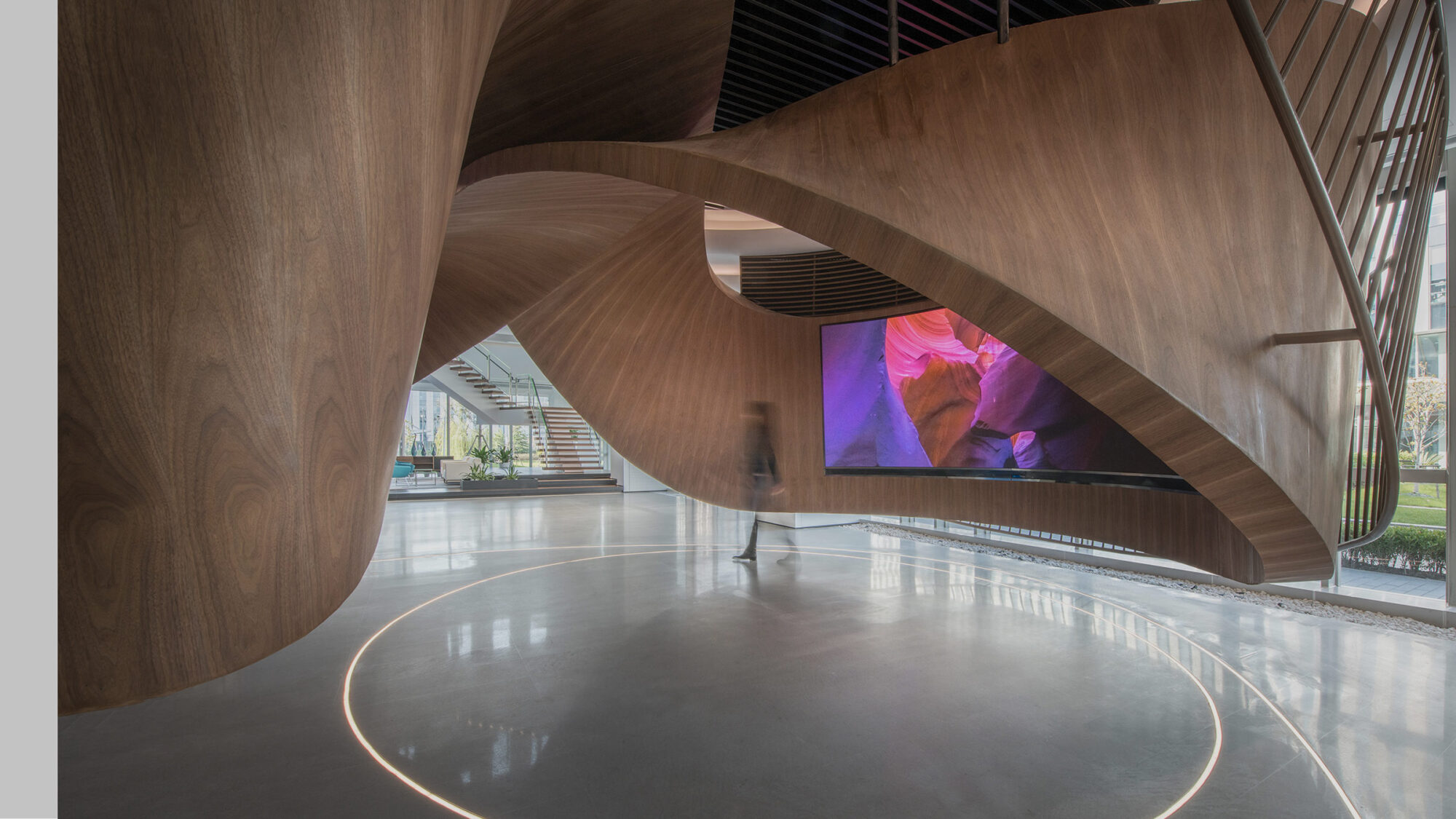
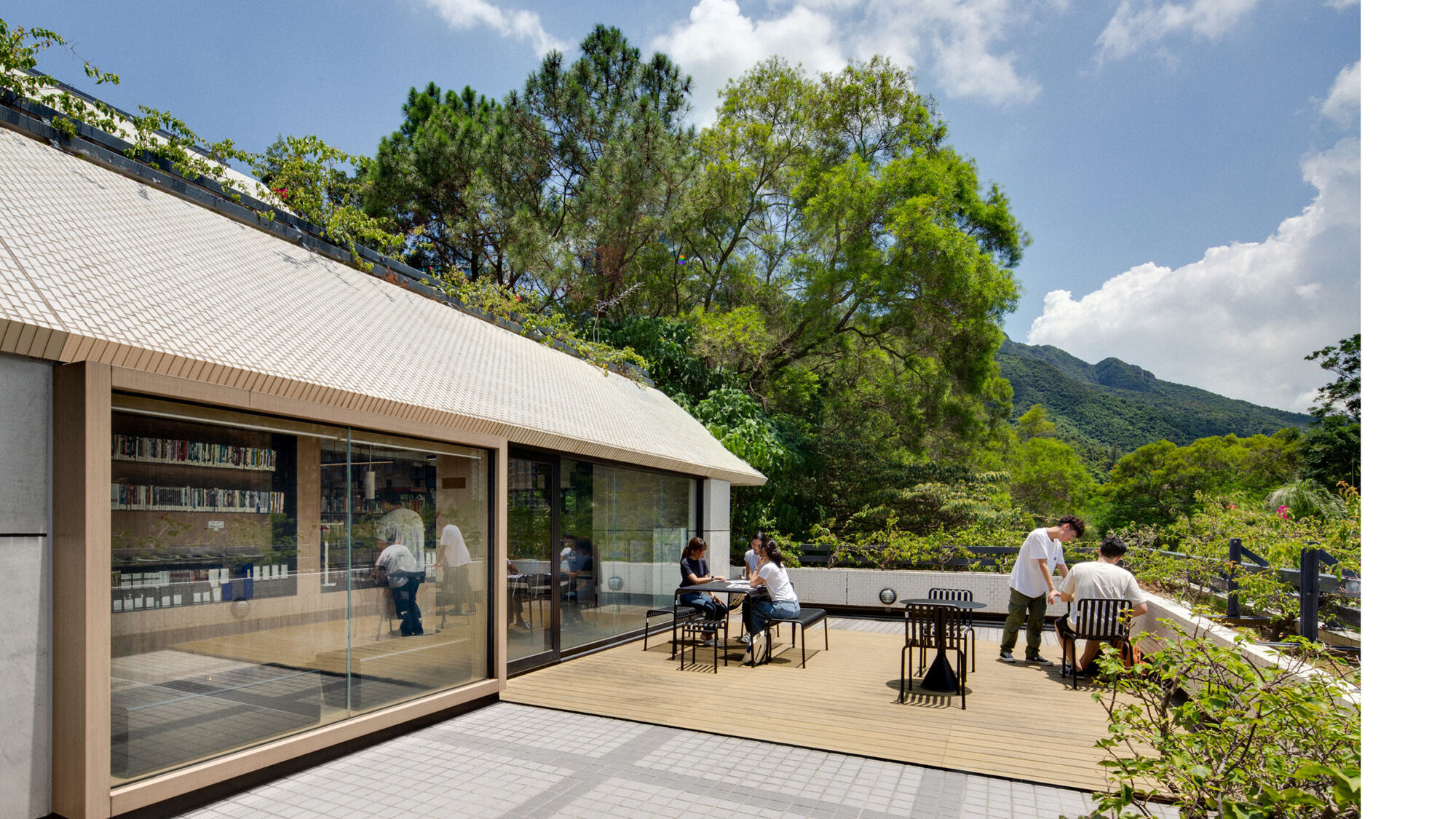
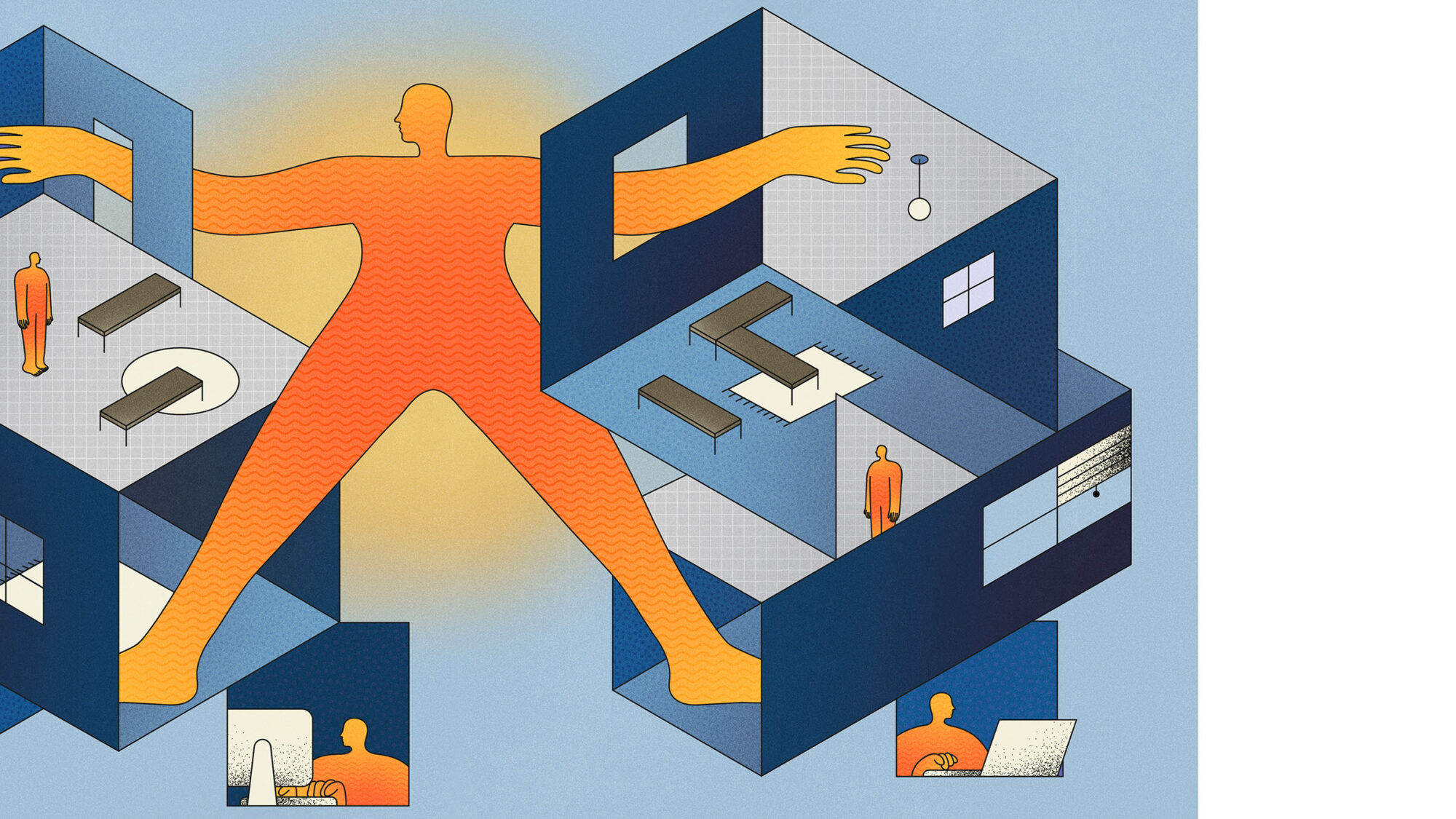
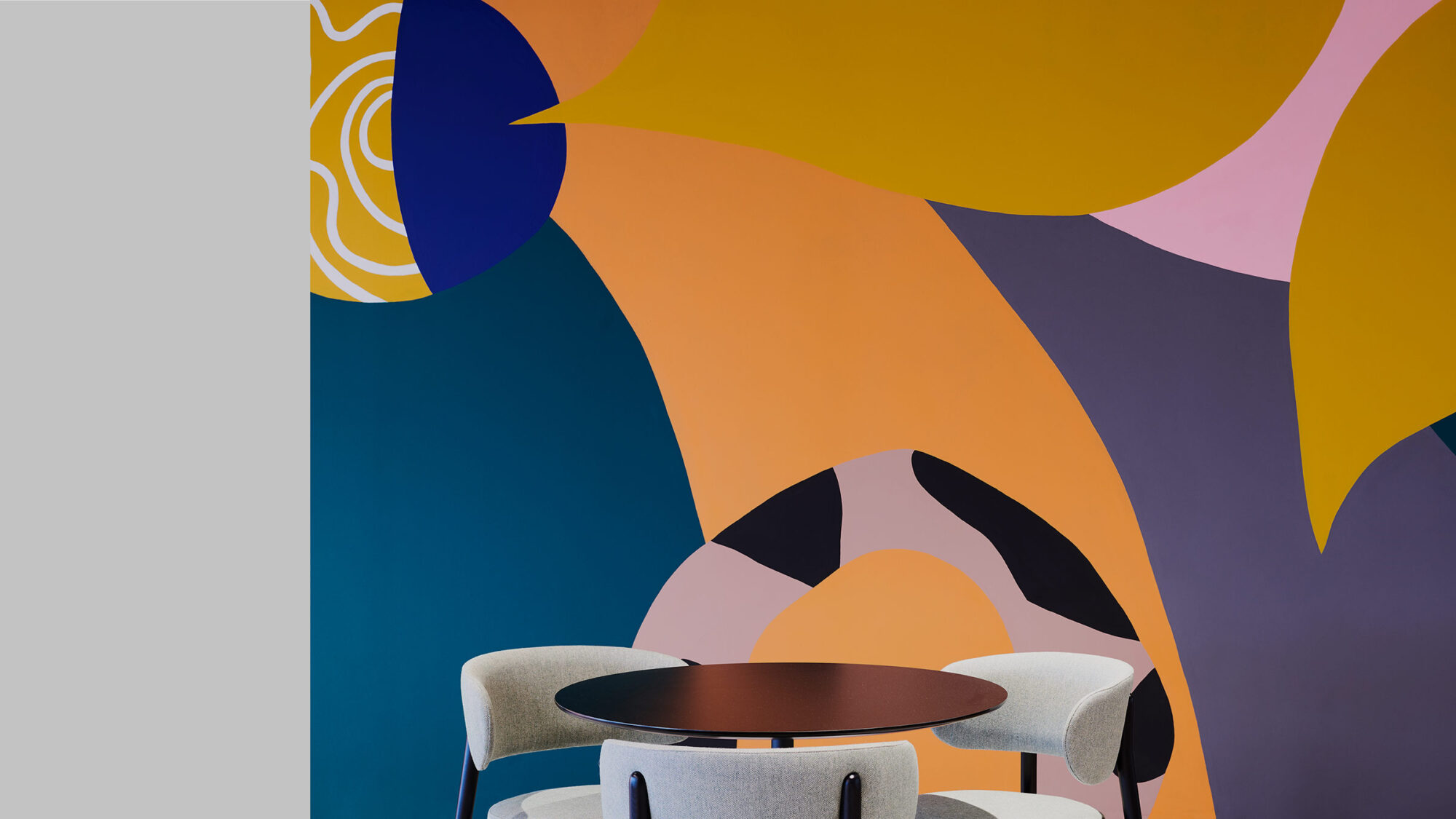
As we progress into 2020, we explore the key trends set to shape global workplaces this year – from “behaviour-based design” to the significance of mental wellbeing and the impact of digital.
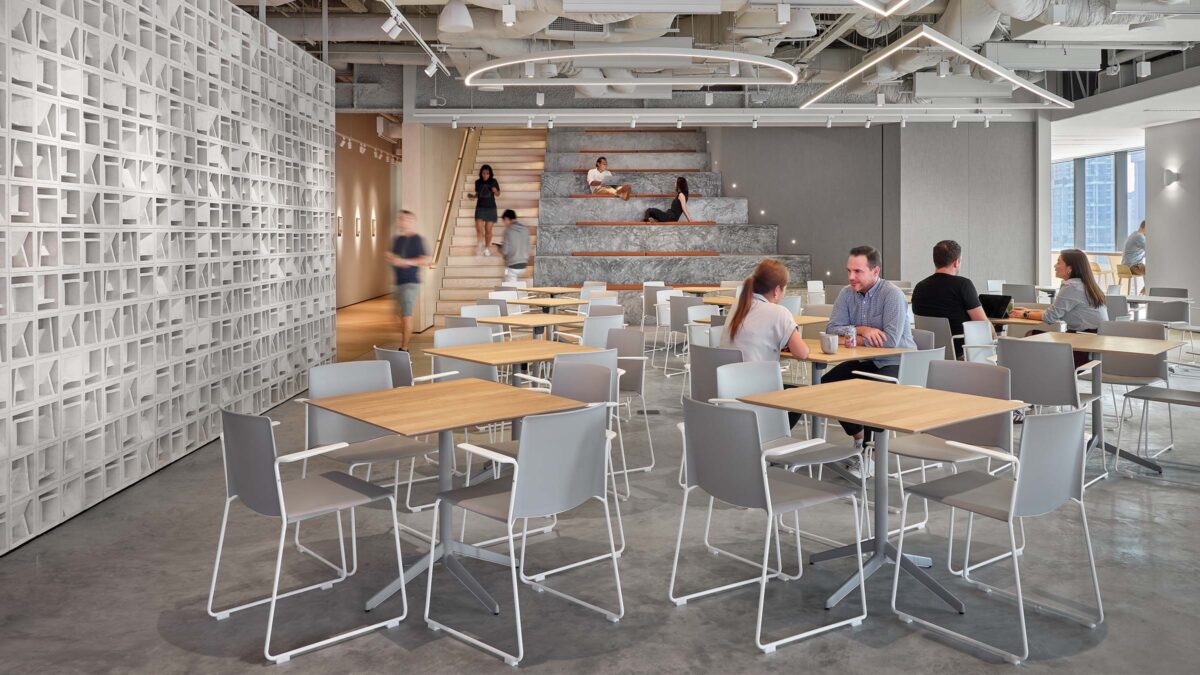
Businesses will create their own unique habitats based on the behaviours that help them to succeed.
Space inherently shapes behaviour. If the business goal is to be more “innovative”, the workplace should support the behaviours that lead to innovation within that organisation. Too often, the workplace is designed to support generic outcomes or single-use activities, but through behaviour-based design, it can be utilised much more strategically.
Work used to require one basic type of behaviour to complete a task, but this has now developed into a range of behaviours that need different environments to support them. In turn, businesses will need to create their own unique habitats based on a collection of required behaviours, designed for flexibility, customisation and cycles of user change.
As we look forward into 2020 and beyond, the workplace will be seen as a business incubator, not just an asset owned by it. Only when the space, technology, behaviours, and business outcomes are aligned, can high performance be achieved.
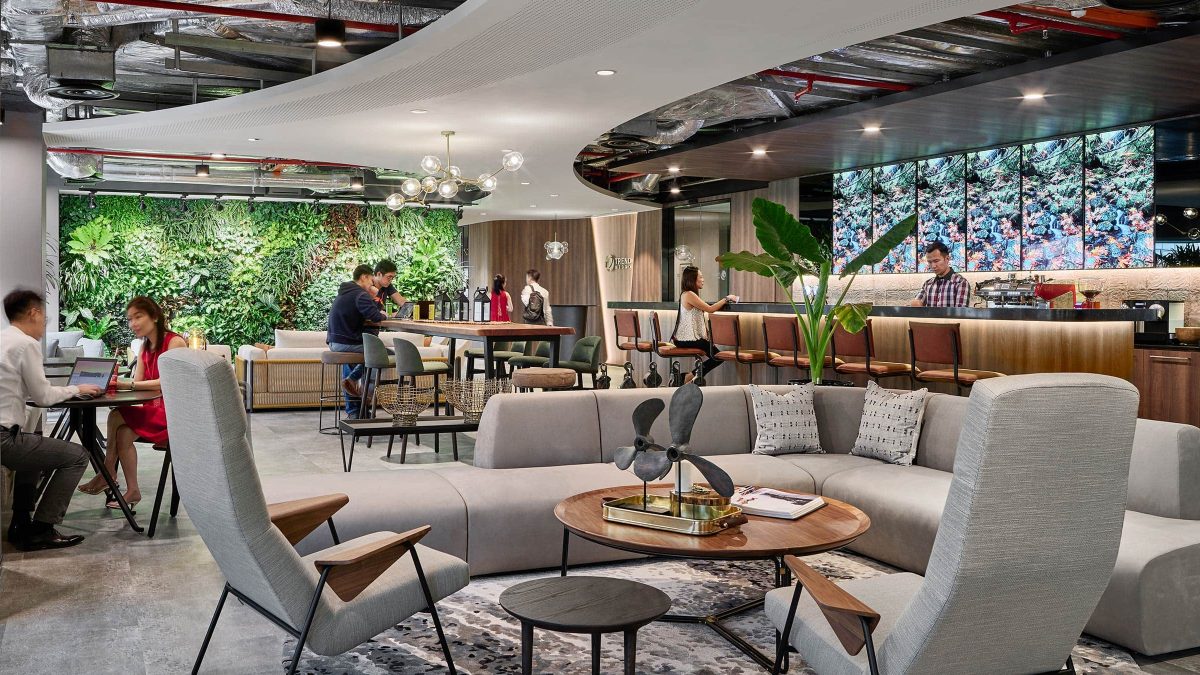
Mental wellbeing will take centre stage as talent becomes an ever more vital business resource.
Designing for physical wellbeing has become part of best practice, but tackling mental wellbeing will become more prominent this year. By creating workplaces in which people feel psychologically safe, businesses are enabling employees to achieve more and be happier at work, while reducing the healthcare costs and high turnover associated with stress and burnout.
In growing economies where talent have ample opportunities and are looking beyond financial gain to the values and culture of a business, physical and mental wellbeing has become an influential factor in employment decisions.
Employers will fine-tune the employee experience, addressing cognitive diversity and the neurodiverse. Real diversity covers more blind spots and the approach will shift from meeting the checklist to developing a deep understanding of emotional responses to space. Ensuring that design is intuitive and creates a sense of safety while enabling choice and empowerment of the individual will be key to the future workplace. Leaders will need to observe, learn, change model and champion the required behaviours.
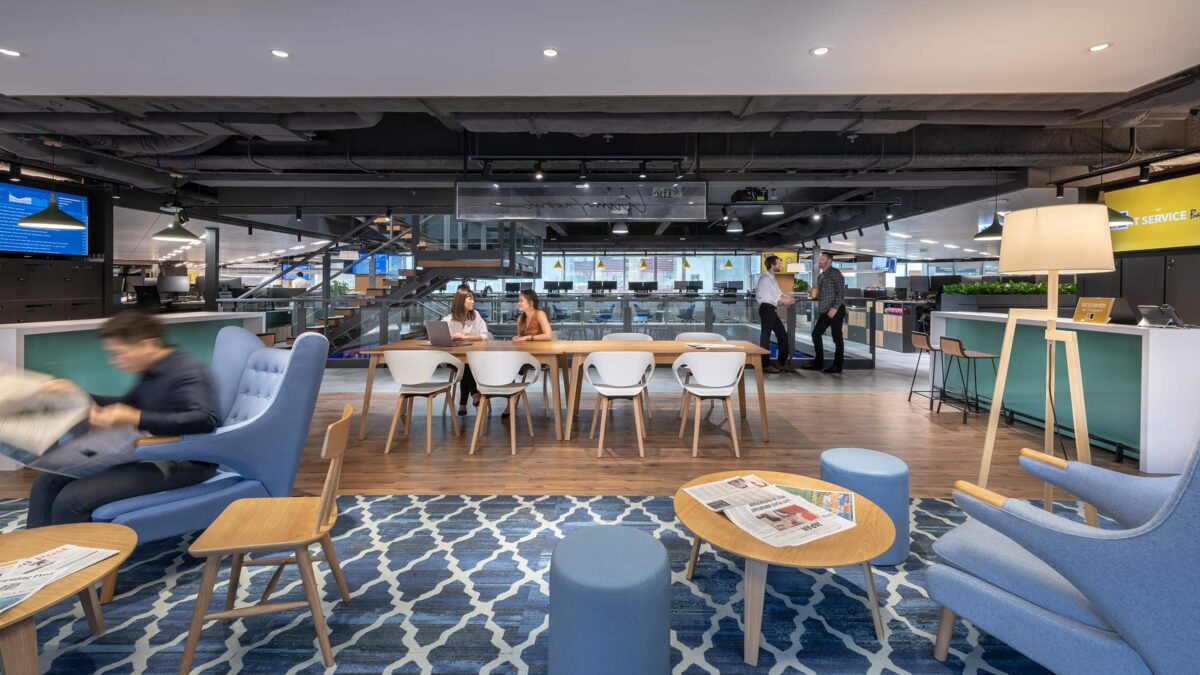
The way we communicate is changing, and shifting our expectations of life and work.
Digital boundaries will receive more attention from businesses in 2020. There is a growing understanding of the impact of technology on employee’s wellness and productivity. As designers, we must consider the impact of digital stressors and how they can be alleviated in the workplace.
With facial scanning and video technology playing larger roles in the design of the work environment, strategists will utilise these tools to help better analyse behaviours, creating personalised work settings based on individual tasks and preferences. Incorporating user feedback will help to tailor and enhance the experience, creating environments that adapt to accommodate each individual, such as monitor and desk height, lighting and more.
The way we communicate is changing and shifting our expectations of life and work. Extending a sense of community through digital will play a pivotal role in the 2020 workplace, where “virtual portals” will connect people in locations across the globe. New modes of adjacency through life-size digital avatars will enhance the experience of connection and collaboration. Businesses will need to consider how digital can help enhance quality of life and enable employees to do their best work.